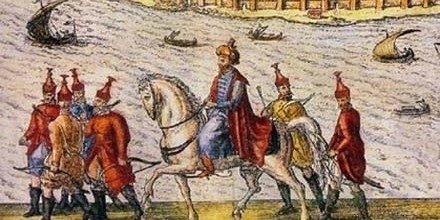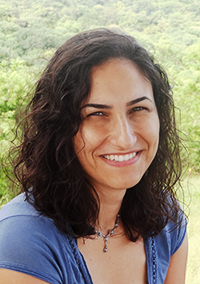Turkish Program

About
Turkey with a population of seventy-eight million and vast economic resources is one of the fastest-growing countries in the world. As a G20, NATO and OECD country and a candidate for the European Union, Turkey is strongly integrated into global organisations and forums.
Outside of Turkey, Turkish language is widely spoken as a minority language or a second language in the neighbouring countries and beyond. Turks have migrated to all parts of the world, and millions of Turkish speakers live today in Europe, US, Canada, Australia and most countries in Asia. Studies in Turkish language, culture and history are therefore in great demand in universities worldwide, particularly in post-Ottoman states and Central Asia but also in Western Europe and the US.
Turkish language courses
Turkish is the official language of Turkey. Modern Turkish is written with Latin alphabet like English, but has additional letters and very simple spelling rules. It is a part of the Uralo-Altaic family of languages and its closest cousins are to be found in Central Asia. It has similar grammatical structures to Hungarian, Finnish and even to Japanese and Korean. Turkish language also contains many words adopted from Arabic and Persian, as well as from other local and European languages.
Turkish-language cinema, music and television drama productions are internationally acclaimed and reach wide audiences across the world. Turkish literature is also very rich and diverse thanks to the contributions of many outstanding contemporary writers.
Turkey is a popular destination for travellers from around the world who are drawn to its unique natural and historical sites. For Australian visitors, Gallipoli is a privileged destination of commemorative tours.
Turkish language courses can now be taken through the ANU Centre for Continuing Education.
Convenor

Dr Burcu Cevik-Compiegne took up the position of the CAIS Turkish Studies Convenor in January 2020. She teaches classes in Turkish language, culture and history.
Dr Cevik studied history, linguistics and literature at the University of Aix-Marseille in France before moving to Australia to complete her PhD at The University of Technology Sydney (UTS). She has researched and taught social and political sciences and cultural studies at UTS.
In joining the CAIS Turkish Studies program, Dr Cevik combined her research interests and teaching experience to strengthen the Turkish program. Her research focuses on the social and cultural legacies of the First World War. She is particularly interested in politics and practices of remembrance of the war in post-imperial and postcolonial nations, mainly Turkey, India and Australia
Objectives
The Turkish language program aims to provide students with the skills necessary to read, write and speak modern Turkish and to familiarise them with modern Turkish culture. In the classes, particularly those for Elementary Turkish, the emphasis is on drills, exercises and situational practice.
All lessons include exercises, reading passages and listening to tapes. The lecturer may provide additional reading when necessary. Students are encouraged to read articles and books on Turkish language and culture.
Language Courses
Turkish language courses can now be taken through the ANU Centre for Continuing Education
Turkish History and Culture
Turkey has a rich cultural heritage that combines both local and global influences. Turkish history is often traced back to Central Asia in ancient times. Turks settled in the current Turkish territory from around 11th century AD through the territorial expansion of the Seljuk Empire. They Turkified and introduced Islam to the whole region. The cultures that previously existed in the region continued to coexist and mingle in various ways and degrees throughout history.
From a small principality of the Seljuk Empire, the Ottomans raised to the status of an empire in their turn in the 15th century. The Turkish Republic finally succeeded the Ottoman Empire from the early 1920s. The transformation of this pre-national empire and the formation of the Turkish nation-state bring about many complex questions that will be discussed in the courses offered in the Turkish Studies Program. History as well as contemporary society, culture and politics are the main centres of interest in the program.
Courses - 2023
- Gallipoli: A transnational history (Undergraduate)
- Modern Turkey: History, Society and Culture (Undergraduate and Graduate)
- Turkish Politics & Foreign Policy
Turkish courses (both lanugauge and non-language) can be undertaken as elective courses.
Turkish courses can also be included in the Master of Middle Eastern & Central Asian Studies (MMECAS), and as an adjunct to research for MMECAS (Advanced), MPhil and PhD.
Exchange opportunities
Through ANU's Global Exchange Program, students can choose to study for a semester or a whole year at Koc University in Istanbul. Regarded as Turkey's top university, Koc University is located in the breathtaking and vibrant city of Istanbul - once the capital of the Roman, Byzantine and Ottoman Empires. General Courses are available through the Global Exchange Program across eight schools and faculties including Arts, Business, Creative Arts, Engineering, Law and Science.
Students interested in studying at Koc University in Istanbul should email global.programs@anu.edu.au
ANU College of Arts and Social Sciences
E: CAIS@anu.edu.au









